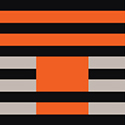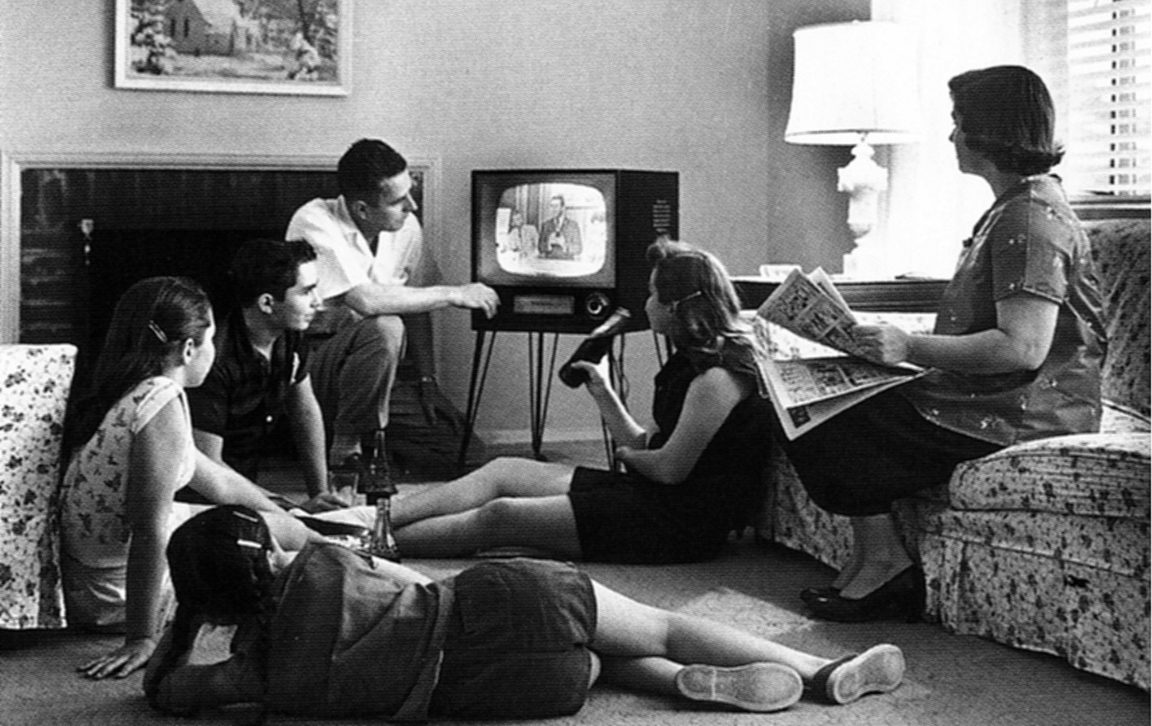A Declaration of Unalienable Responsibilities
by Carol S. Hyman

We’ve come a long way since “We hold these truths to be self-evident” was written by pragmatic insurrectionists hoping to deliver the desired spin, at home and abroad, on their plan to kick the king out of his colonies. The founding fathers had good rhetorical reasons for their broad proclamation that all men are created equal when any fool can see that’s a stretch. These men weren’t fools, but they saw the value of equal rights, and saw no need to enumerate responsibilities along with those unalienable rights because in those days, the obligation of men, at least those who were free and white, to care for themselves (and their wives, families, and slaves, but that’s another story) was taken for granted. No need to state the obvious.
Most of us now would probably agree that what were then extolled as rights of “men” are rightly for all: men, women, and children, of all races. While that’s a giant step forward, somehow the idea of being “endowed with rights” has shifted in our collective consciousness to “entitled to rights,” and then expanded to include more material things. It’s a slippery cultural slope that has led so many to feel that life owes us something that somebody else ought to provide. Elevating entitlement over personal responsibility is a recipe for escalating social discord. Anecdotal evidence would suggest this may be happening.
But the trend can be reversed. One right not enumerated by the founders is the right to drop our preconceptions and projections and seek a clearer perspective. Exercising this right brings insight and the inspiration to take responsibility for our lives, our feelings, and our relationships with the environment and its other inhabitants. Recognizing that human beings have the capacity to deliver either confusion and contention into this world, or bring greater benefit, we resolve to join the ranks of Human Vehicles, people who work to consciously penetrate psychological, material, and historical circumstances so our lives express the best of what it is to be human.
When the founding fathers came up with a system of representative government based on an informed electorate – principled people willing to make it their business to know local, national, and international issues, who could be counted on to exercise measured reason, engage in civil discourse, and forgo potential personal advantage for the larger public good – they could hardly have foreseen a population that’s alarmed and opinionated but not necessarily informed, much less that those people would have to choose between demagogues and candidates so compromised by PACs, polls, and political expediencies that their principles are harder to find than the pea in a shell game. Nor would they have guessed that size, inefficiency, and collusion would render the electoral process so murky that even those who vote can feel disenfranchised and many don’t bother going to the polls because they think “What difference does it make?”
But every crisis is an opportunity. News from the world around us can seem like an alarm ringing ever louder, constantly conveying, in real time and living color, how ignorant are the armies clashing by night and day. We need another revolution. This time it is a coup de consciousness, a transformation of our inner lives that changes the way we see the world. There are far more effective ways of righting the wrongs we see around us than the current tendency to demonize those with whom we don’t agree.
Because there is a sense in which we truly are created equal: all people are endowed with the ability to awaken to our true nature and purpose. This ability is less likely to be realized by those who don’t have enough to eat or daily find themselves having to dodge bombs or bullets. But even the fortunate often shy away because waking up is hard work calling for critical thinking that explores our doubtful hidden assumptions and shines a light on our own prejudices.
Like the early patriots, Human Vehicles believe the future will be better if we aren’t encumbered by tyranny. In our day, the biggest bully on the global block is aggression resulting from misconceptions about the nature of life. We therefore pledge allegiance to the goal of conquering confusion. Victory will come, if it does, slowly, one by one, as individuals assume responsibility for dropping our biases and manifesting our fundamental nature, which is awake, and confident, and kind. Each one who does that will magnetize others; a movement will grow geometrically and cross-culturally as we reclaim our sanity. To mix metaphors and revolutions, our message is “Human Vehicles of the world, unite! You have nothing to lose but confusion.”
Given what we know now, in revisiting words from the Declaration of Independence we might find it more apt to declare our interdependence. But even if we’re not quite ready to do that, we could consider contemplating, and then assuming, a few strategic responsibilities that come along with those rights our forefathers proclaimed as unalienable.
Along with the right to life comes our responsibility to explore it and get the big picture. The profound and vast picture. This is an inhabit-the-province-but-leave-the-provincialism-behind perspective. It’s harder than it sounds because intellectual understanding of it is essential, but it’s not enough. In fact, it can be a trap leading to starry-eyed inspiration – we’re all one and it’s all good – and feeling perhaps a touch superior to those poor fools still trapped in petty concerns. All is bliss until someone cuts us off in traffic, beds our spouse, or badmouths our kid. Then, wham! Our cosmic perspective disappears behind thunderclouds of reactivity and we hunker down to defend our province. After all, what choice do we have?
Which leads right to the next right: liberty. The freedom of choice. For many of us, the fundamental notion of liberty is “don’t mess with me.” Unconstrained by others, I’m free to choose what to make of my life. Ah, limitless possibilities. Why then does it seem for so many of us that the biggest choice of the day is what channel to watch?
The responsibility that accompanies the right to liberty for Human Vehicles is to become aware of our choices, which requires we become aware of our conditioning. Anything we do habitually and without awareness can’t really even be called a choice. The first liberty Human Vehicles take is with our conditioning: seeing it is the start of freeing it.
When my daughter was young, each morning I would ask something like this: Do you want to wear the red dress or the blue pants with the striped sweater? I spoke pleasantly but firmly, as if there were no other options. Before long she wised up and I found myself discussing the disadvantages of wearing a ballerina tutu on the playground and why she had to go to school at all. She learned to ask intelligent questions about the alternatives presented to her.
Human Vehicles need to do the same on a grand scale. We have so many seeming choices – in the supermarket, at the voting booth, in the bookstore, on the internet or television – that we can get caught up in considering what move to make without ever stopping to ask ourselves whether we even want to play the game.
In fact, the only true liberty we have, the fundamental freedom without which our choices are mere pacifiers, is to exercise the option we have to wake up and be present in every moment of life. Each instant we choose: will I inhabit the circumstances in which I find myself in a straightforward and open way? Or will I avoid this moment by losing myself in conceptual content and strategies to ward off unhappiness?
Because we all want to be happy, right? While the founders were smart enough to know that we can’t be guaranteed happiness, they did recognize the importance of the pursuit of happiness, the most personal and most elusive of our rights. People spend incredible time and energy chasing whatever we think will bring satisfaction and delight: if I could just get that job, or be with that person, or drive that car, we think, I would be happy. Then we do, or we don’t. But no matter how often we achieve our goal, soon another desire arises and it’s off to the races; we’re at it again. You might think we’d get wise: it’s a rat race we’re in.
For Human Vehicles, the right to pursue happiness calls for the responsibility to notice what brings more than just transitory pleasure. What carries us closer to a steady state of contentment? What things do we pursue that ultimately won’t deliver? Asking these and similar questions, Human Vehicles find their inner compasses pointing to two major insights about happiness.
The first lies hidden in plain sight: the idea that happiness has to be pursued. We think we need something more, something better, something different from what we already have in order to be happy. Of course we do need to set goals and exert ourselves achieving them, but that doesn’t preclude being happy while we’re doing so. Or while we’re doing nothing. The more we accept that what we actually are, have, and do, right in this moment, is enough, the more at peace with the world and ourselves we will be. It sounds so obvious it’s almost silly to say it. So why is it so hard to recognize?
The other thing Human Vehicles discover by examining experience is that deep and fulfilling happiness tends to arise not so much out of what we do for our own gain or pleasure, but out of what we do to bring benefit to others. And so, to ensure that our vehicle delivers the goods, we work to bring cheerful and generous clarity into every situation.
We hold this truth to be evident to anyone who will take the time and trouble to investigate the matter carefully: if we want to protect our freedom and our rights, we have to take responsibility for what we contribute to the human experiment. As far as truth being self-evident, that raises the question of what self we might be talking about, but that’s another blog post!




